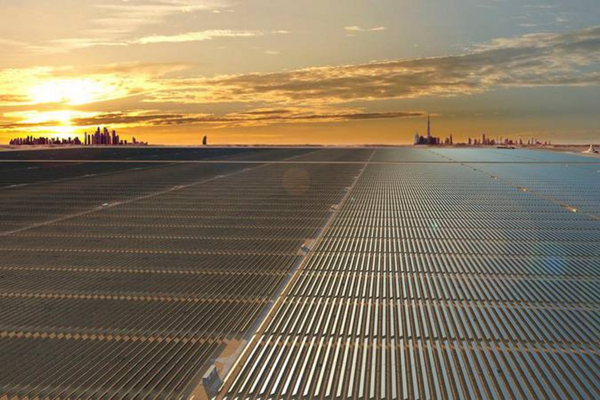UAE’s water and power supply utility Emirates Water and Electricity Company (EWEC) has released its latest Statement of Future Capacity Requirements 2023-2029: Summary Report outlining the water and electricity generation for the future of Abu Dhabi.
The Statement or Report has special focus on the expansion of renewable energy for a greener and sustainable future of Abu Dhabi. It recommends EWEC to raise the total solar power production capacity by over 600% to 7.3 GW between 2023 and 2030. This solar target is in addition to the construction of 300 MW of Battery based Energy Storage Systems (BESS).
With regards to water security of the state, the EWEC Report wants greater investment in low-carbon intensive reverse osmosis (RO) water desalination technologies. The RO tech investments are recommended to cover more than 90% of water demand by the end of this decade.
Thrust On Renewables
The EWEC Statement has been approved by the Abu Dhabi Department of Energy (DoE) that wants UAE to add 3GW of solar energy by 2029. This is in addition to 1.5 GW of solar project that will come from Al Ajban Solar PV project in near future.
The EWEC document has also advocated for the development of at least 300 MW of battery storage capacity having depth of 1-hour by 2026. Energy storage infrastructure will help in the operation of reserves, improve system and strengthen network stability.
The EWEC report also assumes the outcome of these targets: The average carbon dioxide intensity from electricity generation will reduce from 0.33 kg/kWh in 2019 to about 0.19 kg/kWh by 2029.
“This report provides a powerful key reference that outlines Abu Dhabi and the UAE’s future needs. Our growing portfolio of renewable and clean energy projects is accelerating the decarbonisation of the country’s energy sector in line with the UAE Net Zero by 2050 strategic initiative whilst supporting the realisation of the Abu Dhabi Department of Energy’s Clean Energy Target 2035,” said Othman Al Ali, CEO of EWEC.
The Thermal ‘Bridge’
The EWEC Statement also focuses on the development of gas based thermal power generation and desalination technologies for water supply in Abu Dhabi. The document said that the thermal power projects using gas turbine technology should be part to transformation of the energy mix. This can be a bridge towards the decarbonisation of the energy sector of UAE. It held that 9-GW of thermal capacity should be added in order to meet the growing power demand and replace 7-GW of contract-expiring thermal cogeneration projects.
Bruce Smith, Executive Director at EWEC, stated, “EWEC is leading Abu Dhabi’s transition to low-carbon-intensive water and electricity production. The report’s in-depth modelling analysis recognised significant system cost and carbon emissions reduction benefits from developing additional solar PV power and RO water desalination capacity, enabling the translation of these insights into actionable plans. EWEC is making tangible progress towards further diversifying the energy mix and increasing the share of renewable energy and low-carbon intensive RO to ensure a secure, sustainable, and least-cost supply of water and electricity across Abu Dhabi and beyond.”


